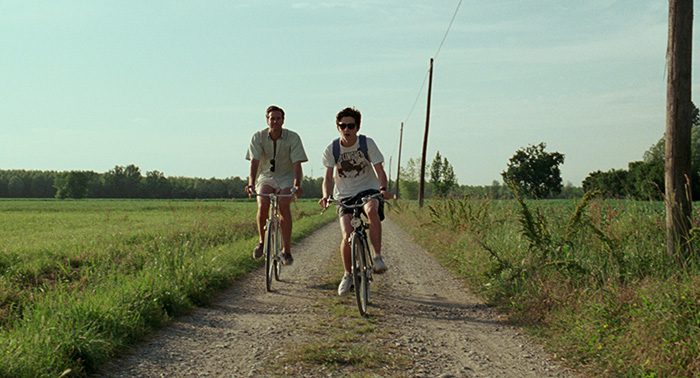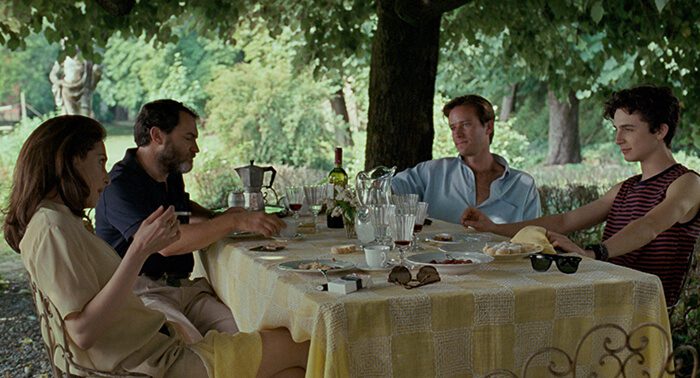
Elio Perlman, the main character of André Aciman’s 2007 novel Call Me By Your Name, is a beautiful, precocious, and wealthy seventeen-year-old. One summer in the early 1980s, in an unspecified town on the Italian coast, he finds himself both angered and enamored by his father’s summer boarder and research assistant, a young American academic named Oliver. Told entirely from Elio’s perspective, the novel chronicles his interior thoughts, fears, and desires as he navigates his sexual awakening and confronts Oliver with his feelings.
Adapted for the screen by James Ivory and directed by Luca Guadanigno, the film version of Call Me By Your Name preserves much of Aciman’s coming-of-age story. Set in the northern Italian countryside, Elio (Timothée Chalamet) glides through life relatively unchallenged and unfettered, as his parents’ progressive and laissez-faire attitudes make clear early in the film. Faced with his desire for Oliver (Armie Hammer), Elio behaves much as any adolescent would: he writes furiously in his journal; he feigns indifference; he snoops through Oliver’s belongings. By turns brooding and arrogant, Chalamet’s face offers just enough feeling for us to realize he is tormented, but he pulls back before his performance becomes maudlin.

It’s not difficult to see why Elio would be attracted to Oliver, dubbed “la movie star” by Elio’s mother early in the film. Cocksure and casual as portrayed by Hammer, Oliver is a young scholar who wins over Elio’s whole family—and the town—with his easy masculinity. Less clear, at least initially, is why someone as self-assured and aloof as Oliver makes himself out to be would be attracted to Elio. As the film progresses, the two men bond over their shared Judaism, and Oliver is clearly smitten with Elio’s musical ability (in Aciman’s telling, he is somewhat of a wunderkind). As their affair intensifies and their intimacy blossoms, Oliver’s tough exterior eventually gives way to a tenderness and humor even more endearing than his initial charms. But the film also consistently shies away from the most carnal details that Aciman lays out in his novel. The couple’s raw sexual attraction often defaults to the romantic on screen, as if romance and carnality somehow can’t coexist—although Aciman was able to balance both the tender and the rough elegantly and in equal measure. As the camera panned away from the two men embarking on their first sexual encounter, I immediately thought back to another film, Blue Is the Warmest Color (2013, dir. Abdellatif Kechiche), which made nearly pornographic lesbian sex the centerpiece of its love story, and not necessarily to its credit. Call Me By Your Name seems to have opted for modesty, and the film doesn’t suffer because of it—perhaps a lesson for the next director who considers asking his actresses to engage in a nine-minute sex scene.
Call Me By Your Name is jewel-like in its focus, and every detail of its flawless setting and script services Elio’s exultation and inevitable heartbreak. Even with its predictable conclusion, it’s difficult to feel too sorry for Elio; his life is undeniably idyllic. It’s virtually impossible to consider that the emotional chaos he feels during his affair with Oliver will do anything more than become a fond memory. This is the experience of a boy who enjoys his torture, who revels in the depths of feeling induced by his first love. (The film’s soundtrack, which includes several Sufjan Stevens songs, only emphasizes the self-indulgences of Elio’s pathos.) Nowhere is this more apparent than in the film’s final, mesmerizing shot of Elio’s face, gorgeous in its suffering.




